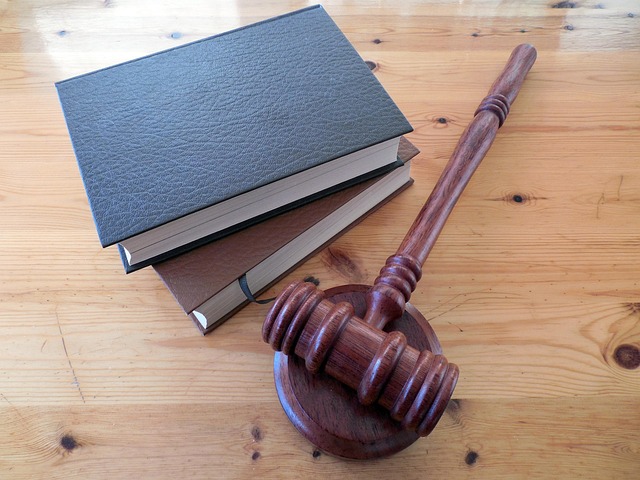Environmental Crime Trials are legal battles that tackle violations from air pollution to deforestation, demanding innovative litigation strategies and a deep understanding of complex regulations, particularly Financial Regulatory Compliance Litigation Strategies. Success relies on robust evidence, creative legal arguments, and demonstrating environmental harm. These trials impose significant financial penalties as deterrents, requiring litigants to navigate stringent regulations and develop effective defenses. Through meticulous tracking, forensic accounting, and detailed documentation, these cases expose hidden illegal activities, leading to severe penalties and fostering sustainability. High-profile prosecutions set precedents, emphasizing the crucial role of Financial Regulatory Compliance Litigation Strategies in holding corporations accountable and promoting environmental responsibility.
Environmental Crime Trials: Uncovering the Legal Landscape of Ecological Justice
This comprehensive guide explores the intricate world of environmental crime trials, delving into their legal intricacies from a professional perspective. We dissect the financial dimensions and regulatory compliance challenges in environmental litigation, highlighting key strategies for robust prosecution. Through real-world case studies, we illustrate successful approaches and valuable lessons learned, providing an indispensable resource for understanding this vital domain. Discover how these trials shape our response to ecological offenses, fostering regulatory adherence and financial accountability.
- Understanding Environmental Crime Trials: A Legal Perspective
- Financial Aspects and Regulatory Compliance in Environmental Litigation
- Strategies for Effective Environmental Crime Prosecution
- Case Studies: Successes and Lessons Learned in Environmental Litigation
Understanding Environmental Crime Trials: A Legal Perspective

Environmental Crime Trials represent a unique intersection of legal expertise and environmental stewardship. These trials delve into complex cases where businesses and individuals have violated laws designed to protect our planet, from air pollution to deforestation. From a legal perspective, they require an understanding of intricate regulatory frameworks and their evolution, particularly in the realm of Financial Regulatory Compliance. Litigation strategies in these trials often involve navigating stringent regulations and demonstrating environmental harm caused by nefarious activities.
The success of Environmental Crime Trials lies not only in the strength of evidence but also in the application of innovative legal arguments. Defendants face charges that go beyond traditional white-collar and economic crimes, necessitating an unprecedented track record of legal acumen. Judges and juries must grapple with the subtleties of environmental law and its implications for corporate responsibility, ensuring justice is served while fostering a culture of sustainability within the respective business sectors.
Financial Aspects and Regulatory Compliance in Environmental Litigation

In environmental crime trials, financial aspects play a pivotal role. Litigants often face significant monetary penalties for non-compliance with regulations, reflecting the severity of ecological damage and the need to deter future offenses. Understanding these financial implications is crucial for developing effective litigation strategies. Lawyers must navigate complex laws and regulations to ensure their clients avoid indictment while adhering to strict environmental standards. By employing strategic legal arguments and leveraging available defenses, professionals can help mitigate financial exposure and promote sustainable practices within their organizations.
Regulatory compliance is not merely a legal obligation but also a key factor in shaping corporate responsibility. Environmental litigation often involves interactions between businesses, philanthropic and political communities, as stakeholders seek justice and accountability. For his clients, successful representation requires a deep understanding of regulatory frameworks and the ability to implement compliant practices, thereby avoiding costly legal battles and fostering positive environmental change. This proactive approach not only strengthens corporate reputations but also contributes to the broader goal of preserving the environment for future generations.
Strategies for Effective Environmental Crime Prosecution

Environmental Crime Trials require a robust and strategic approach to ensure justice is served. A key aspect is integrating Financial Regulatory Compliance Litigation Strategies throughout the investigative and enforcement process. This involves meticulous financial tracking, forensic accounting, and comprehensive documentation to expose illegal activities that harm our environment. By intertwining these strategies, prosecutors can navigate complex corporate structures and unmask those responsible for environmental misconduct.
Moreover, fostering collaboration between law enforcement agencies, environmental experts, and both philanthropic and political communities is vital. This collective effort strengthens the case against polluters, resulting in more substantial penalties and deterrents. A well-coordinated response not only brings perpetrators to justice but also promotes a culture of sustainability and accountability across industries.
Case Studies: Successes and Lessons Learned in Environmental Litigation

Environmental Crime Trials have been transformative, offering valuable insights through case studies that illustrate successful litigations and crucial lessons learned. These cases span various industries, from manufacturing to mining, showcasing the broad range of environmental violations that can be prosecuted under strict regulations. For instance, high-profile prosecutions against large corporations have led to significant fines and criminal convictions, setting precedents for future cases.
The strategies employed in these trials highlight the importance of Financial Regulatory Compliance and Litigation. Prosecutors have utilized innovative approaches, including complex financial analysis and forensic accounting, to uncover hidden assets and illicit transactions. These methods, combined with powerful evidence from environmental experts, have resulted in substantial recoveries and deterred similar misconduct. Moreover, the involvement of both corporate and individual clients in these white collar and economic crimes has underscored the need for robust internal controls and accountability mechanisms within organizations.
Environmental crime trials play a pivotal role in upholding ecological balance and ensuring corporate accountability. By understanding the legal framework, leveraging financial aspects, and employing effective prosecution strategies, these cases can lead to significant environmental protections. The success of environmental litigation is evident through notable case studies, offering valuable lessons for navigating complex legal and regulatory landscapes. Integrating financial regulatory compliance measures into environmental litigation strategies is crucial for achieving lasting environmental justice.






